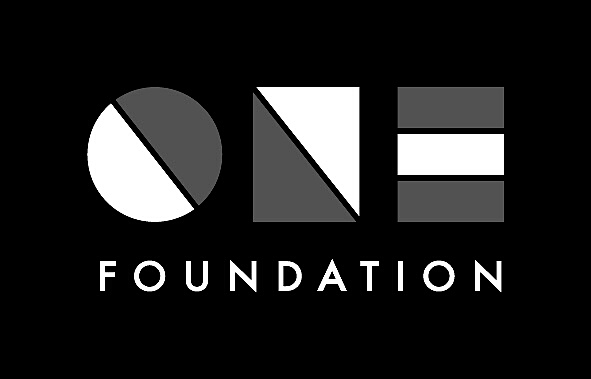Preparation & Recovery
Key Contacts:
Simeon – [email protected] | +64 21 609 581
Lucy – [email protected] | +64 21 137 7828
NZ Tower Grab&Go Area
There will have an area for self-service of smoothies, NZ snacks and pick-ups of booked snack-packs, slushy and ice-vests.
The Prep and Recovery Team (PRAT) will operate a kitchen area where we will prepare these for you, the area won’t be a free-flow space so please let us know your needs through the booking system or Whatsapp.
Snackpacks
These will be available for your competition days. Please let PRAT team know when you’d like these supplied to you.
Whats inside?
OSM Mini Bites, Tasti Bliss Balls, Roasted Fava Beans, Fruit and Nut Mix, Pics Peanut Butter Slug and a Go Native Dried Fruit Leather Bar. If you have any allergies, please let PRAT know and we can accommodate a swap.

Keep cool and carry on!
Out and about
- Avoid unnecessary heat exposure – seek shade and wear a hat when outside. Keep sunscreen in your training / competition bag.
- Hydration is KEY! Always have an insulated water bottle on you. Urine should be light yellow in colour.
- Small chilly bag handy for keeping bottles and food cool.


In competition / training
Practice body cooling in training and competition prior to Games. A combination of internal and external cooling is most effective! Examples include:
- Ice towels (applied to face and neck), kept in chilly bag.
- Ice vests (bookings needed).
- Consume cold fluid and food (e.g. chilled water, ice-blocks, slushy (pre-bookings needed.
- Cold-water immersion pre / post session (discuss with your practitioners if this is appropriate for you).



In the Village
We want to keep the cool air in and the heat out! To make this happen we need to:
- Allow airflow from apartment air-conditioning units by closing windows and opening bedroom doors where possible.
- Keeping external shutters closed when sun is directly facing into rooms.
(E.g. if you’re out at training all day, close shutters before you leave to keep room cool).
- Optimal temperature for rooms should be between 18-22°C.
Sleep Hygiene
Having a sleep routine will be helpful during Games time to ensure you’re winding down and recovering effectively. Practice these before entering the Games environment.
We highly recommend the use of earplugs and eye masks as the Village can be a bright and noisy place.
Things that can affect sleep and how to plan for them;
- Caffeine (stick to your regular intake, avoid after midday where possible).
- Late naps can keep you up if you’re not accustomed (stick to your regular nap schedule).
- Blue light emitted from devices (try to avoid screens 60-90mins before bed, reading a book is handy for this!).
- Timing of meals (bigger meals take longer to digest so eat last meal at least 90 mins before bed).
Keeping cool for sleep;
- Cooler body temperatures ensure better quality sleep and recovery. Cooling down prior to bed will signal to the body that you’re ready for bed.
- Having a cool shower or using a cool wet cloth on the face / neck is an easy way to do this. Drinking cool water will also decrease your internal body temperature.


Gym Options
There are two gym options within the village. A small set up within the New Zealand Tower and the Main Village gym. Both gym options will need to be booked to ensure that necessary support is available when you need it.
NZ Tower Gym
The New Zealand Tower will be home to a small gym, recovery and physical preparation area. This physical recovery and preparation area is the preferred gym option for hygiene reasons and the ability to be able to fully control the environment.
Equipment in the New Zealand Tower gym include:
- 1 x Half rack and barbell + Paralympic weights.
- 1 x adjustable bench.
- Dumbbells ranging from 1-40kg.
- Kettlebells ranging from 4-32kg.
- 2-3 Wattbikes and some stretching mats.
- Strength Bands and Mini Bands.
- Soft Plyo Box / Step.
The ceiling height is low and because it is not a ground floor we will not be able to drop weights or lift massively heavy weights.
Washing hands and disinfecting equipment pre/post use is essential.

Recovery and Stretching Area
Within the NZ gym space there will be a room with stretching mats, foam rollers and other equipment that is suitable for recovery, stretching, priming and mobility. The Recovery and Stretching area will need to be booked through the booking system.
Main Village Gym
The main village gym is across the road from the New Zealand Tower. Hygiene practices will be strongly recommended because other countries may not be as disciplined with these. Disinfecting equipment before use, using masks and social distancing, and minimizing time in the main village gym is strongly recommended.
Located in the north of the Residential Zone, the Fitness Centre is spread over two levels of Halle Maxwell and will be available to athletes 24 hours a day from 21 August 2024. The ground floor will house a wide selection of cardio equipment (including accessible cardio equipment) and free weights, whilst the upper level will be used for stretching, warm- up and recovery. Male/female showers and saunas will also be available in the Fitness Centre.
The following equipment will be supplied and installed by Paris 2024’s partner Technogym:


Main Village Gym Equipment List

Cold Pools:
The NZ Paralympic Team will have access to small one-person cold plunge pools which will need to be booked through the PRAT team. They are manually filled with ice and water for a single use. After use the pool will be hygienically cleaned for the next use.
To ensure the pools stay hygienic; athletes will need to shower prior to use and utilise the foot bath (where possible) when stepping into the pools.

Building up walking or pushing mileage
There is quite a bit of getting around the village so building your capacity to walk or push around the village is important. If you don’t do much daily walking (sedentary/desk job) it will pay to start building up your milage. If you are a support person start with 5-10 minutes and do a deliberate effort each day. Every 3 days increase the load by 5 minutes until you can comfortably walk for 40+ minutes. If you are an athlete, make sure you talk to your coach if it is right for you, or if there are better ways to save energy in the village as increasing walking or pushing may add to your fatigue and could potentially compromise training and performance. If you are unsure contact Simeon or Lucy.
Hygiene:
When entering any of the Preparation and Recovery or the dining hall please follow strict access rules.
- Wash Hands thoroughly with soap and warm water.
- Use hand sanitizer on entering and leaving the areas.
- Wipe down or clean equipment with disinfectant appropriately.
- Communicate any concern of hygiene or safety.
- Only enter the kitchen like area under strict permission as it is restricted.

Booking System
All Preparation and Recovery services and areas will be operated through a booking system. This is important so that we can manage everyone’s needs and support everyone as seamlessly as possible.
Prior to departure, all sports will be sent a spreadsheet to fill in what their needs are predicted to be during Games time. It will be important to be specific to time, person/s involved and what type of support you need. The more clarity we can have early on this the better. If you are unsure of your needs, please reach out and we can talk through it further.
Within the village during the Games, we will be operating the booking system through an online Google Form and if this stops functioning we will resort to a pen and paper system that will be easy to follow. All needs need to be booked in 24 hours in advanced – if needs change within this window we will work to support you to the best of our ability but if the team is stretched then we may not be able to help or support you as well as we would have with more notice.

Village Food and Dining Halls
The Main Paralympic Village and satellite village in Chateauroux offer different meal options and combinations on each day. Main Village options are below, for Chateauroux menu options, see here.

Paris Village – Dining Hall Layout

Menu Items – Available everyday

*French, World, Asia, Halal – 2 additional options, operating on a 4-day rotating menu; Island Dining Hall – 1 additional option operating on an 8-day rotating menu; **soup option operating on a 4-day rotating menu
Beverage Station Items:
Milk (skimmed, whole, soy, sugar-free almond, oat), coffee & tea (including decaffeinated), infusion, hot chocolate
Cereals (puffed rice, oats, chocolate granola, fruit granola, All Bran, gluten-free cereal).
Condiments Table Items:
nuts (hazelnut, almond, walnut), seeds (pumpkin, chia, linen, sunflower, sesame), onions (fried, red), olives, capers, gherkins, jalapeno pepper, vinaigrettes (light mustard, lemon & olive oil, soy sauce & sesame), sauces (tabasco, sweet soy, salted soy, gluten-free soy, nuoc mam, low-fat cottage cheese, Caesar, ketchup), pesto, mustard, black olive tapenade, chickpea hummus, eggplant caviar, oils (rapeseed, olive, walnut, chilli), vinegars (balsamic, cider, aged wine, mirin), herbs (basil, coriander, flat parsley, chive, mint, oregano, herbs of Provence), dried fruit (apricot, date, cranberry, raisin), sugars (beet, brown, white, honey, maple syrup, agave syrup, raspberry jelly), seasonings (salt, pepper, curry, paprika, cumin, cinnamon, turmeric, mild red pepper), spreads (butter, salted butter, margarine, chocolate spread, peanut butter, apricot jam, almond purée, cream cheese), fruits (yellow fruit coulis, red berry coulis, pomegranate, goji, lemon wedges), cheese (parmesan, emmental, pecorino), hard-boiled egg, croutons, unsweetened cocoa.
Salad Bar

Paris Menu: Food Descriptions
You can refer to this when you are in the dining hall.
|
A |
Acheke |
– fermented cassava pulp |
|
|
Arugula |
– rocket |
|
B |
Babka |
– sweet braided bread |
|
|
Baozi |
– bao buns – stuffing wrapped inside sweet white dough |
|
|
Basquaise |
– sauce made from tomatoes, pimentos, onion & garlic |
|
|
Batavia |
– lettuce |
|
|
Béarnaise |
– sauce made from butter, egg yolk, white-wine vinegar, & herbs (similar to hollandaise sauce) |
|
|
Beluga lentils |
– small black lentil |
|
|
Biriyani |
– South Asian basmati rice dish |
|
|
Brandade |
– puréed potatoes, salt cod, garlic & olive oil |
|
|
Brie de Meaux |
– soft brie cheese from France |
|
C |
Cantal |
– cow’s milk cheese from central France |
|
|
Caramague rice |
– from the Caramague region of France (white, black & red varieties) |
|
|
Chaource |
– soft cow’s milk cheese |
|
|
Chard |
– green leafy vegetable similar to silver beet |
|
|
Chermoula |
– North African sauce made from parsley, coriander, garlic, citrus & spices |
|
|
Chili con carne |
– spicy stew containing chilli peppers, meat, tomatoes & beans |
|
|
Chimichurri |
– Argentinian uncooked sauce made from parsley, garlic, olive oil, oregano, red pepper flakes & red wine vinegar |
|
|
Chorizo |
– spicy pork sausage |
|
|
Comté |
– cheese |
|
|
Conchiglie |
– pasta shells |
|
|
Confit of time |
– food that is cooked slowly over a long period |
|
|
Congee |
– savoury rice porridge |
|
|
Crottin de Chavignol |
– a small cheese made of goat’s milk |
|
D |
Dal |
– stew with split lentils, spices, tomatoes & coconut milk |
|
|
Dashi |
– flavourful stock base for Japanese broths |
|
|
Duck magret |
– fattened duck breast |
|
E |
Edamame |
– green soy beans |
|
|
Emmental |
– medium-hard cheese with holes, similar to Swiss cheese |
|
|
Empanada |
– baked or fried filled pastry |
|
|
Escalope |
– a thin slice of meat that is coated & fried, similar to schnitzel |
|
|
Espelette pepper |
– mildly hot pepper |
|
F |
Fregola sarda |
– couscous |
|
G |
Gomasio |
– sesame seed & sea salt condiment |
|
|
Gorgonzola |
– blue-veined cheese |
|
|
Gratin dauphinois |
– sliced potatoes baked in cream |
|
|
Gyoza |
– Japanese dumpling |
|
H |
Har gow |
– Cantonese dumpling |
|
|
Hokkien |
– thick egg noodles |
|
J |
Jiaozi |
– Chinese dumpling |
|
K |
Kimchi |
– spicy pickled cabbage |
|
L |
Liégois cream |
– -ice cream topped with cream? |
|
|
Linguine |
– long pasta, similar to fettucine |
|
M |
Mandu |
– Korean dumpling |
|
|
Maroilles |
– cow’s milk cheese from northern France |
|
|
Merguez |
– spicy lamb or beef fresh sausage |
|
|
Mignon |
– a fillet of meat |
|
|
Mimolette |
– round, orange, hard cheese |
|
|
Miso |
– fermented soybean paste |
|
|
Moussaka |
– eggplant or potato-based dish that includes ground meat |
|
N |
Nem |
– Vietnamese spring rolls |
|
O |
Opéra |
– layered French cake with almond sponge, coffee syrup & coffee cream |
|
|
Ossau Iraty |
– sheep milk cheese |
|
|
Osso buco gremolata |
– veal shanks in a tomato white wine sauce |
|
P |
Pad Thai |
– stir-fried rice noodle dish with bean sprouts, garlic chives, scrambled egg & meat or seafood |
|
|
Paella |
– saffron-flavoured rice cooked with meats, seafood & vegetables |
|
|
Pak choi |
– Asian green with a green steam, similar to Bok choy |
|
|
Parmigiana |
– fried eggplant slices layered with cheese & tomato sauce & baked |
|
|
Pastéis de nata |
– Portuguese egg custard tart pastry |
|
|
Pecorino |
– Italian hard cheese made from sheep’s milk |
|
|
Pho |
– Vietnamese soup dish consisting of broth, rice noodles, herbs & meat |
|
|
Pilaf |
– rice dish cooked in stock or broth with added spices |
|
|
Piperade |
– stew made with peppers, tomatoes & onions slow-cooked in olive oil (may include beaten eggs) |
|
|
Piquillo pepper |
– variety of chilli with a sweet taste & little or no heat |
|
Q |
Quenelle |
– a mixture of creamed fish or meat formed into an egg-like shape |
|
R |
Ramen |
– Japanese noodle dish with wheat noodles in a broth |
|
|
Ratatouille |
– stewed vegetable dish made with tomatoes, zucchini, peppers, onions & eggplant |
|
|
Rocamadour |
– goat cheese from southwest France |
|
|
Romesco |
– sauce made from nuts (almonds or hazelnuts), tomatoes, dried peppers, garlic, bread, olive oil & vinegar |
|
|
Rougail |
– tomato-based sauce containing a variety of spices |
|
S |
Seitan |
– plant-based meat substitute made from wheat gluten that mimics taste & texture of chicken |
|
|
Sriracha |
– hot sauce made from chilli peppers |
|
|
Sui mai |
– Chinese steamed dumpling |
|
T |
Tagine |
– North African stew often including dried fruit, honey & cinnamon |
|
|
Tagliatelle |
– long flat pasta ribbons |
|
U |
Udon |
– thick Japanese noodle made from wheat flour |
|
V |
Vermicelli |
– thin thread noodles/pasta |
|
W |
Wakame |
– seaweed |
|
Y |
Yakisoba |
– Japanese stir-fried dish made using soba noodles |
|
|
Yakitori |
– skewered meat |
|
Z |
Za’atar |
– a savoury dried herb & spice blend that also includes sesame seeds, salt & sumac |
Paris Village – Lunch and Dinner Rotating Menu Items











































